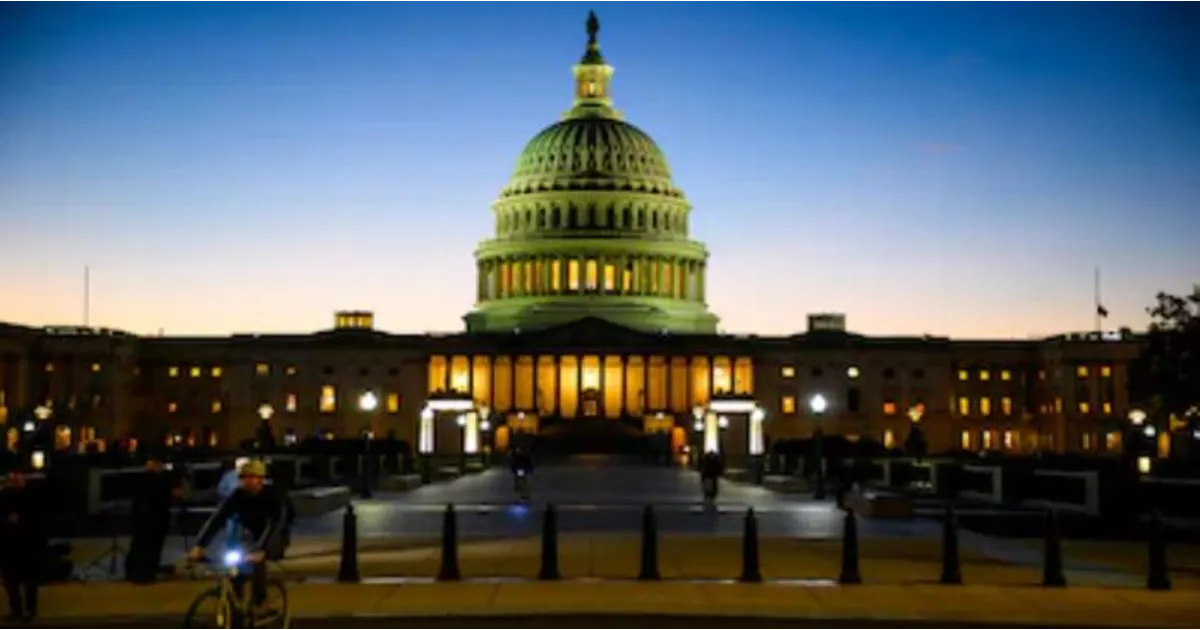
Bipartisan Negotiations Bring Shutdown Closer to Conclusion
After 40 days of federal gridlock, US senators have reportedly reached an agreement to reopen the government. A coalition of at least eight Senate Democrats, in collaboration with Senate Republican leaders and the White House, finalized a deal aimed at ending the protracted shutdown. In return, a future vote is planned on extending enhanced Affordable Care Act (ACA) subsidies. The Senate is scheduled to vote on the proposal between 8:30 and 9 pm ET (7:30 am IST Monday).
Trump’s Response to the Agreement
President Donald Trump, speaking shortly after arriving at the White House from the Commander’s game, indicated optimism about the shutdown’s end. He stated, “Looks like we’re getting very close to the shutdown. We’ll never agree to give any substantial money to prisoners or undocumented immigrants, and I think the Democrats understand that. You’ll know very soon.”
Senate Leaders Signal Progress
Senate Republican Leader John Thune said a test vote was “coming together” and highlighted the potential for delays if consensus is not reached. Thune emphasized the Senate’s plan to vote on the House-passed funding measure along with several year-long appropriations bills. Historically, procedural motions to reopen the government had failed 14 times due to the 60-vote threshold requirement.
Key Provisions of the Deal
The agreement, reportedly spearheaded by Senators Angus King (Maine), Jeanne Shaheen, and Maggie Hassan (New Hampshire) alongside Thune and the White House, includes several critical measures:
- Senate vote on an ACA-related bill by the second week of December
- Reversal of all shutdown-related federal employee layoff notices
- Extension of the stopgap funding measure through January
- Funding of three full-year appropriations bills for departments such as Agriculture
- Continuing resolution to fund remaining government functions at current levels through January 30
- Full funding for the Supplemental Nutrition Assistance Program (SNAP) through next September
Notably, the agreement does not immediately extend expiring ACA subsidies. Instead, Democrats secured a commitment for a Senate vote on the matter by mid-December, leaving the outcome uncertain.
Next Steps if the Vote Passes
Even with a successful Senate vote, the government shutdown may not end instantly. House approval is still required, and Democratic support in the House remains uncertain due to demands for a one-year extension of ACA subsidies. Republicans need only a few Democratic votes to pass the Senate threshold, while 10–12 Democrats have been engaged in negotiations. If passed in the Senate, the package must still clear the House and receive President Trump’s signature, a process that could take several days.






